Chapter 2. History of Psychology
HP.2: Deep Dive – Eight Influential Pioneers in Psychology
Approximate reading time: 72 minutes
Before we explore the modern era of psychology, it’s important to acknowledge the significant contributions from various cultures around the world to our understanding of the human mind and behaviour. Long before psychology became recognized as a science, people from different cultures had already developed deep insights into how humans think and act. This includes the philosophical inquiries of Ancient Greece and India, the detailed studies of emotions in Chinese and Islamic teachings during their golden ages, and the deep understanding of the psyche in Indigenous cultures. These early contributions provided a foundation for many ideas that modern psychology would later explore, including some that have not always been given due credit or attention in mainstream psychology studies.
Psychology, which began to take shape as an experimental science in the 19th century, was initially intertwined with philosophy. People like Wilhelm Wundt in Germany and William James in North America are often celebrated as the pioneers who established psychology as a unique scientific and academic field. A variety of perspectives in the development of psychology have greatly benefited from the insights of these early founders.
For example, feminist psychology emerged to challenge the male-centred focus of earlier theories and practices. It highlighted the specific experiences and psychological needs of women, pushing against established norms and advocating for gender equality in psychological research and practice. Influential figures like Sandra Bem and Carol Gilligan transformed our understanding of gender roles and identity, offering a broader view of human psychology.
The study of racial identity and the psychological effects of racism also became important, especially in the context of Black psychology. The pioneering work of psychologists like Mamie Phipps Clark and Kenneth Clark, followed by scholars such as Claude Steele, provided deep insights into the impacts of racial prejudice and segregation, influencing educational policies and practices.
Indigenous psychology is another important area that acknowledges the distinct cultural, social, and historical contexts of Indigenous peoples. Psychologists like Gregory Cajete and Eduardo Duran have emphasised the importance of integrating traditional knowledge and practices into our psychological understanding, promoting a more comprehensive and culturally sensitive approach to mental health and well-being.
The history of psychology is vast and complex, covering a wide range of theories, experiments, and groundbreaking discoveries. Covering it all would require an entire course. In this next section, we will highlight eight psychology pioneers from various psychology disciplines.
Highlighting Eight Influential Psychology Pioneers
In this section, you will read about eight psychologists, each selected to represent a different area within the expansive field of psychology. Our goal is to showcase the diversity within psychological research and practice, acknowledging from the start that these eight figures are merely a small sample of the many contributors who have shaped the discipline. Psychology, as a field, is enriched by a wide range of perspectives, theories, and methodologies, reflecting the complexity of human behaviour and mental processes.
The limitation to highlighting one psychologist from various disciplines is not an indication of their sole importance but rather a practical decision due to space constraints. It’s impossible to cover everyone who deserves recognition within this brief overview. Here is your snapshot of the field’s richness and the variety of insights that have advanced our understanding of psychology.
Focusing on these eight pioneers is intended to spark your curiosity and encourage further exploration into the contributions of other psychologists, especially those whose work has been historically overlooked or marginalised. This approach aligns with the broader goal of promoting an inclusive view of psychology that values diversity and recognizes the importance of multiple perspectives in enriching our understanding of the human mind and behaviour.
The psychologists featured in the text boxes throughout this section are not intended for memorisation. Instead, they are included to offer you an appreciation for some of the other influential pioneers in psychology, highlighting the depth and diversity of contributions across the field. See Supplement HP.3 for a more complete list of pioneers.
1. Wilhelm Wundt (1832–1920) – Structuralism
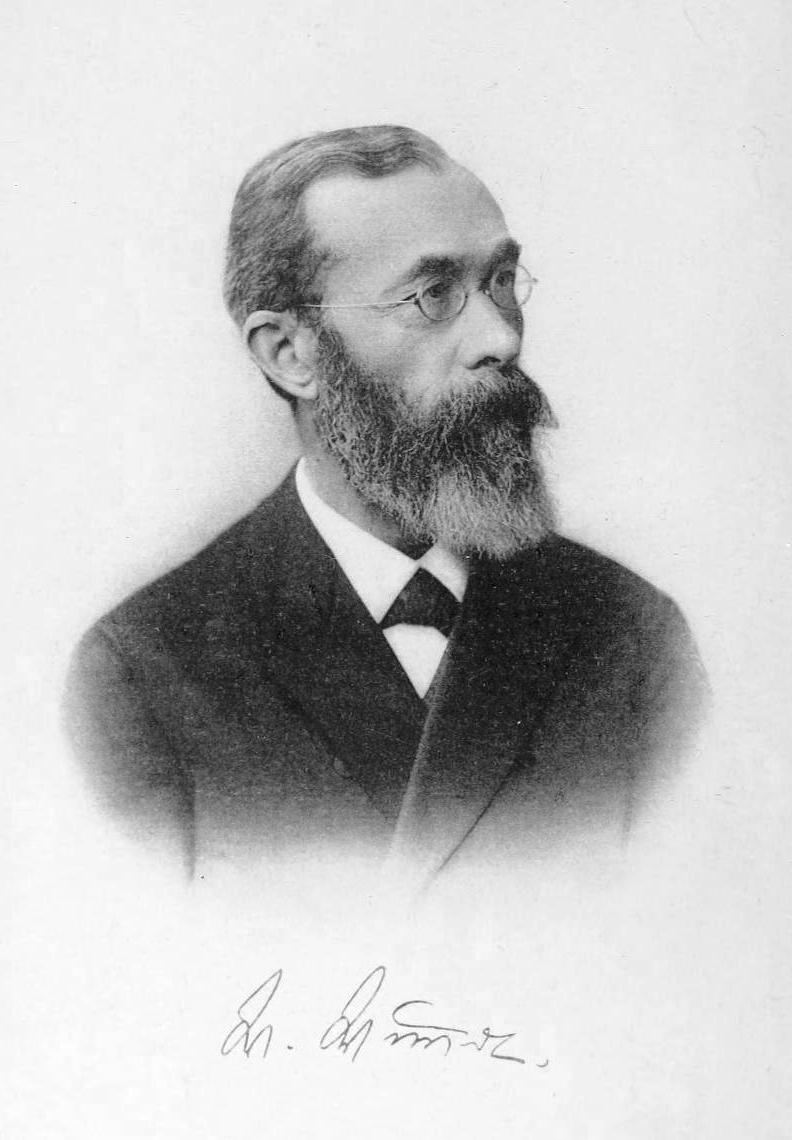
Wilhelm Wundt, a German scientist active from 1832 to 1920, is often celebrated as the first true psychologist. His influential book, “Principles of Physiological Psychology,” published in 1873, marked a significant milestone in psychology (Araujo, 2021). Wundt viewed psychology as a scientific study of conscious experience. He aimed to dissect the components of consciousness and understand how they combine to form our overall conscious experience.
Wundt utilised a method known as introspection, or internal perception, where individuals examined their own thoughts and feelings as objectively as possible. This approach treated the human mind as a subject of scientific study, similar to any natural phenomenon. Wundt also emphasised voluntarism, the belief in free will, advocating that participants in psychological experiments should be fully aware of the experiment’s intentions.
In 1879, Wundt established his psychology laboratory at the University of Leipzig. Here, he and his students conducted various experiments, such as measuring reaction times to stimuli like lights or sounds. These experiments were precise, measuring reactions to the thousandth of a second. Wundt also believed in the importance of cultural studies in psychology, as he argued in his 1904 book “Volkerpsychologie.”
However, Wundt’s introspection method had its limitations due to its subjective nature, leading to varying interpretations among different individuals.
Watch this video: Structuralism, Wilhelm Wundt, & Edward Titchener – Psychology (3.5 minutes)
“Structuralism, Wilhelm Wundt, & Edward Titchener – Psychology” video by The School of Ireland is licensed under the Standard YouTube licence.
Structuralism
Edward Titchener (1867–1927): A key figure in the development of structuralism, Edward Titchener focused on dissecting the conscious mind into its basic elements using introspection, significantly influencing early American psychology.
Functionalism
William James (1842–1910): As the first American psychologist, William James championed functionalism, emphasising the importance of studying the functions of behaviour and mental processes in adapting to the environment.
Pioneering Women in Psychology
- Margaret Floy Washburn (1871–1939): The first woman to earn a PhD in psychology, Margaret Floy Washburn made pioneering contributions to comparative psychology, particularly through her work on animal cognition in “The Animal Mind.”
- Mary Whiton Calkins (1863–1930): Despite facing gender discrimination, Mary Whiton Calkins made significant contributions to memory research and self-psychology, blending introspection with an emphasis on the purpose of consciousness.
Psychoanalytic Theory
- Melanie Klein (1882–1960): Melanie Klein significantly advanced psychoanalytic theory with her work in child psychology and play therapy, offering deep insights into the emotional lives and development of children.
- Nancy Chodorow (1944–): Nancy Chodorow’s work in psychoanalytic theory and feminist psychology has profoundly influenced our understanding of gender identity and the dynamics of family relationships.
2. Sigmund Freud (1856–1939)
Psychoanalytic Theory
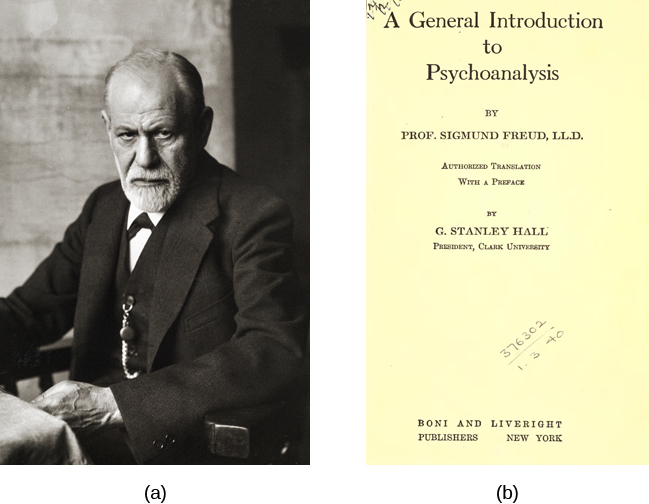
Figure 1.4 as found in Psychology 2e by OpenStax is licensed under a CC BY 4.0 License.
Freud’s theories, though developed over a century ago, continue to influence modern psychology. His theory of the dynamic unconscious suggests that our deepest thoughts and feelings operate below the level of our conscious awareness, subtly influencing our behaviours and choices (Loevinger, 1966). The idea of interpersonal drive plasticity highlights how our motivations and desires can shift based on our relationships with others, reflecting the fluid nature of human psychology (Loevinger, 1966). Additionally, Freud’s pleasure principle and drive theory propose that our actions are often driven by an innate desire to seek pleasure and avoid pain, and by internal forces like biological and emotional needs (Souza, 2023). These foundational concepts from Freud provide valuable insights into understanding of human behaviour and the complexities of the mind.
Freud’s theories have been criticised for having a male bias, meaning that they often view psychological issues from a man’s perspective and overlook women’s experiences. For example, Freud suggested that men and women naturally have different personalities, like men being more logical and women more emotional, which supports old-fashioned gender stereotypes. His theories on how children develop psychologically were mainly based on boys, with his ideas about girls being less developed and offered as an afterthought. Freud also had a limited view of female sexuality that oversimplified and misrepresented women’s experiences. He even saw some typical feminine traits, like showing emotions, as problematic. Feminist psychologists argue that Freud’s work is too focused on men and doesn’t fairly represent women, calling for a more balanced approach in psychology (Harrison, 1978; Gillem, Sehgal, & Forcet, 2002; Patil, 2017).
Watch this video: Why Do We Still Teach Freud If He Was So Wrong? (6 minutes)
“Why Do We Still Teach Freud If He Was So Wrong?” video by SciShow Psych is licensed under the Standard YouTube licence.
Behaviourism
- Ivan Pavlov (1849–1936): Pavlov’s research on classical conditioning laid the groundwork for behaviourism by demonstrating how reflexive behaviours can be conditioned by associating different stimuli.
- John B. Watson (1878–1958): As a proponent of behaviourism, Watson shifted psychology’s focus to observable behaviour, advocating for the scientific study of actions without reference to mental states.
- Mary Cover Jones (1896–1987): Known for her pioneering work in desensitising fears, Mary Cover Jones developed counterconditioning techniques that laid the foundation for behaviour therapy.
- B.F. Skinner (1904–1990): Skinner expanded on behaviourism with his research on operant conditioning, emphasising the role of reinforcement and punishment in shaping behaviour.
- Ulric Neisser (1928–2012): Dubbed the “father of cognitive psychology,” Neisser played a crucial role in shifting the focus of psychology to the study of internal mental processes like perception and memory.
The Cognitive Revolution
- Ulric Neisser (1928–2012): Dubbed the “father of cognitive psychology”, Neisser played a crucial role in shifting the focus of psychology to the study of internal mental processes like perception and memory.
- Jean Piaget (1896–1980): Piaget’s theory of cognitive development, detailing how children’s thinking evolves through distinct stages, has profoundly influenced our understanding of child psychology.
- Albert Bandura (1925–2021): Bandura’s social learning theory, highlighting the role of observation and imitation in learning, expanded the scope of psychology beyond traditional conditioning theories.
Humanism
Abraham Maslow (1908–1970): Maslow’s hierarchy of needs theory, emphasising a progression from basic survival needs to self-actualisation, has been influential in both psychology and broader cultural contexts.
3. Noam Chomsky (1928–present)
The Cognitive Revolution
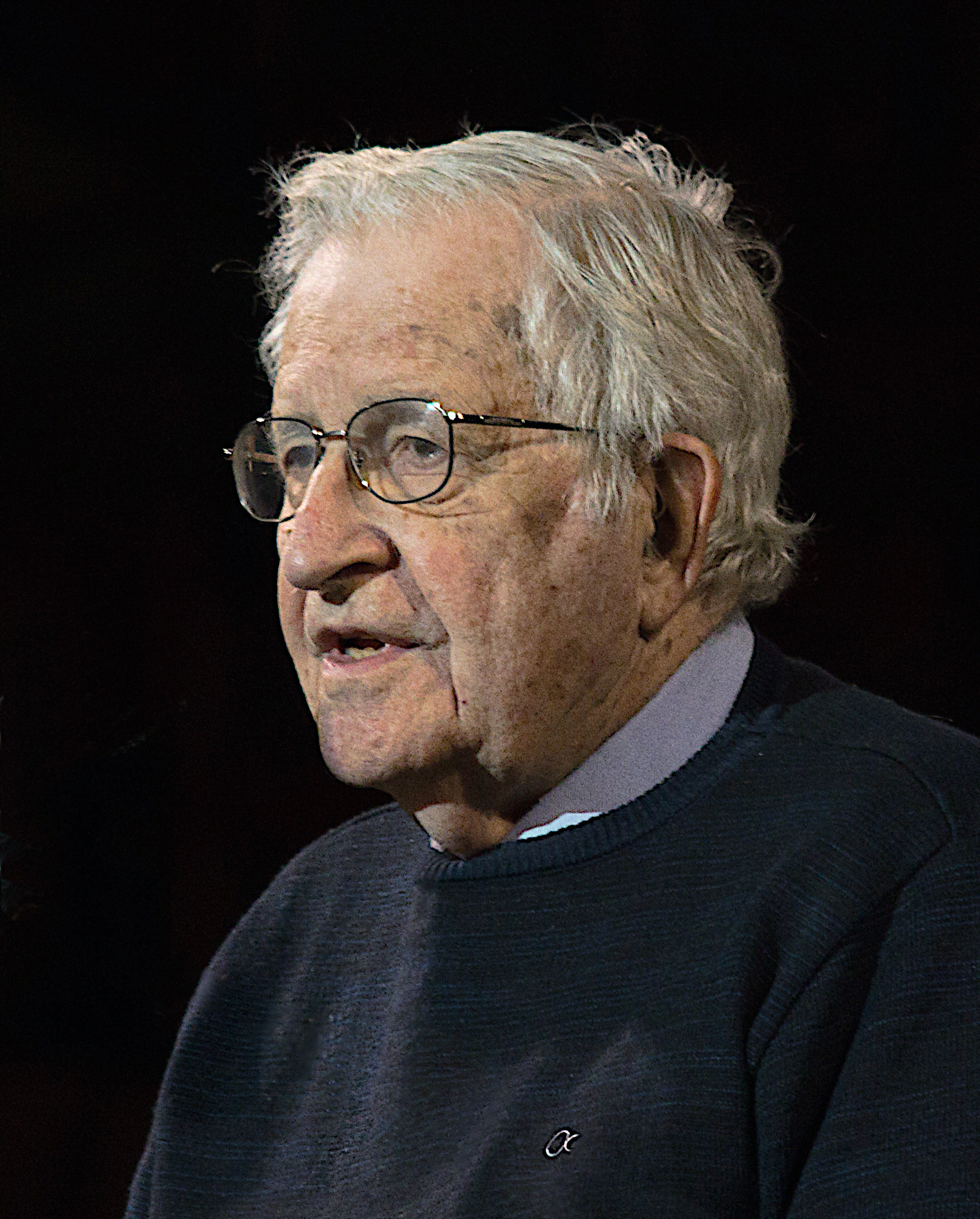
Although no one person is entirely responsible for starting the cognitive revolution, Noam Chomsky was very influential in the early days of this movement (Figure IP.9). Chomsky, an American linguist, was dissatisfied with the influence that behaviourism had on psychology. He believed that psychology’s focus on behaviour was short-sighted and that the field had to re-incorporate mental functioning into its explanations if it were to offer any meaningful contributions to understanding behaviour (Miller, 2003). Noam Chomsky’s work in linguistics, emphasising that language arises from an innate human capacity, has significantly influenced modern cognitive science. His theory of a “universal grammar” inherent to all humans revolutionised the understanding of language acquisition and processing, leading to advancements in cognitive psychology (Barman, 2014; Glover, 2014). Chomsky’s insistence on the importance of innate structures in the mind for language development shifted psychology’s focus towards internal mental processes, contributing to the cognitive revolution (Glover, 2014). This shift not only changed the direction of psychological research but also influenced fields like artificial intelligence and neuroscience (Glover, 2014).
Watch this video: Noam Chomsky on Language Acquisition (2 minutes)
“Noam Chomsky on Language Acquisition” video by BBC Radio 4 is licensed under the Standard YouTube licence.
4. Carl Rogers
Humanism
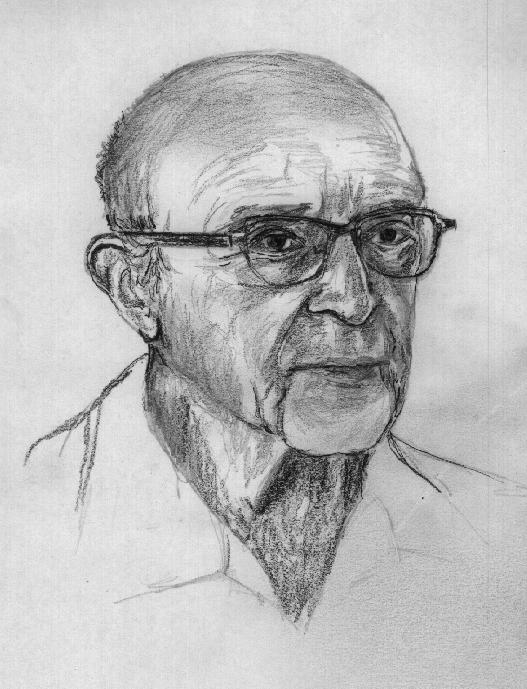
Carl Rogers was also an American psychologist who, like Maslow, emphasised the potential for good that exists within all people. Rogers used a therapeutic technique known as client-centred therapy to help his clients deal with problematic issues that resulted in their seeking psychotherapy. Unlike a psychoanalytic approach in which the therapist plays an important role in interpreting what conscious behaviour reveals about the unconscious mind, client-centred therapy involves the patient taking a lead role in the therapy session. Rogers believed that a therapist needed to display three features to maximise the effectiveness of this particular approach: unconditional positive regard, genuineness, and empathy. Unconditional positive regard refers to the fact that the therapist accepts their client for who they are, no matter what he or she might say. Rogers believed that people were more than capable of dealing with and working through their own issues (Thorne & Henley, 2005).
Humanism has been influential to psychology as a whole. Both Maslow and Rogers are well-known names among students of psychology (you will read more about both later in this text), and their ideas have influenced many scholars. Furthermore, Rogers’ client-centred approach to therapy is still commonly used in psychotherapeutic settings today (O’Hara, n.d.)
Watch this video: Carl Rogers on Person-Centred Therapy (2 minutes)
“Carl Rogers on Person-Centred Therapy” video by PsychotherapyNet is licensed under the Standard YouTube licence.
5. Naomi Weisstein
Feminism and Gender Studies
An article by Naomi Weisstein, first published in 1968 (Weisstein, 1993), stimulated a feminist revolution in psychology by presenting a critique of psychology as a science. She also specifically criticised male psychologists for constructing the psychology of women entirely out of their own cultural biases and without careful experimental tests to verify any of their characterizations of women. Weisstein used, as examples, statements by prominent psychologists in the 1960s, such as this quote by Bruno Bettleheim: “We must start with the realisation that, as much as women want to be good scientists or engineers, they want first and foremost to be womanly companions of men and to be mothers.” Weisstein’s critique formed the foundation for the subsequent development of a feminist psychology that attempted to be free of the influence of male cultural biases on our knowledge of the psychology of women.
Crawford & Marecek (1989) identify several feminist approaches to psychology that can be described as feminist psychology. These include re-evaluating and discovering the contributions of women to the history of psychology, studying psychological gender differences, and questioning the male bias present across the practice of the scientific approach to knowledge.
Watch this video from 1:19:32-1:27:31: Naomi Weisstein Memorial (1939-2015): Founding Feminist, Neuroscientist, Comedian, and Musician (8 minutes)
Feminism and Gender Studies
- Sandra Bem (1944–2014): Bem transformed our understanding of gender through the development of the Bem Sex-Role Inventory, challenging traditional gender norms and advocating for the concept of psychological androgyny.
- Judith Butler (1956–present): Butler revolutionised gender studies by introducing the idea of gender performativity, suggesting that gender identity is constructed through social behaviours rather than being biologically predetermined.
- Carol Gilligan (1936–present): Gilligan expanded the field of moral psychology by highlighting the differences in moral reasoning between genders, emphasising the importance of relational context in ethical decision-making.
Indigenous Psychology and Methodologies
- Linda Tuhiwai Smith (1950–present): Smith pioneered Indigenous methodologies in academic research with her work advocating for decolonisation and the inclusion of Indigenous perspectives, significantly influencing research practices.
- Gregory Cajete (1950s–present): Cajete has been instrumental in integrating Indigenous knowledge into education and psychology, emphasising the critical role of cultural context in learning and mental health.
- Vine Deloria Jr. (1933–2005): Deloria was a key figure in Native American Studies and psychology, focusing on Indigenous spirituality and challenging the academic status quo with Indigenous knowledge systems.
- Eduardo Duran (1950s–present): Duran has been pivotal in blending Indigenous healing practices with Western psychological methods, advocating for culturally sensitive therapeutic approaches.
Race Theory and Racial Identity Development
- Kimberlé Crenshaw (1959–present): Crenshaw developed Critical Race Theory and the concept of intersectionality, exploring the complex interplay of race, gender, and class in experiences of discrimination and privilege.
- bell hooks (1952–2021): hooks critically examined the connections between race, capitalism, and gender, contributing to discussions on social justice and the psychological effects of societal power structures.
- Beverly Daniel Tatum (1954–present): Tatum’s work on racial identity development and the psychology of racism has deepened our understanding of race relations and educational psychology.
6. Maria Yellow Horse Brave Heart (1950s–present)
Indigenous Psychology and Methodologies
Maria Yellow Horse Brave Heart’s work on historical trauma and its impact on Native American populations has changed how we think about intergenerational trauma in psychology. She introduced the concept of soul wound and historical trauma (Durán, Duran, Brave Heart, & Yellow Horse-Davis, 1998) A “soul wound” refers to a deep emotional and psychological injury that affects an individual at the core of their being. Historical trauma, on the other hand, is a term that describes the cumulative emotional and psychological pain carried across generations by a group of people who have experienced traumatic events in their history. Her development of the concept of historical trauma response has provided a framework for understanding the intergenerational psychological impact of colonisation and cultural oppression (Brave Heart, 2002). This has significantly influenced how mental health professionals understand and address the mental health needs of Indigenous populations. Brave Heart’s theoretical framework has been foundational in studies exploring the effects of historical trauma among Native American communities (Sharif & Murtaza, 2022). Her work has also been instrumental in highlighting the role of gender injustice and the fight against male domination within these communities (Mulyadi, 2018).
Moreover, Brave Heart’s contributions have extended to the broader understanding of the heart’s role in various physiological and psychological conditions, enriching the field with her insights (Ferrario & Page, 1978). Her work appears in significant journals, contributing to the discourse on psychoactive drugs and their impact on Indigenous populations (Journal of Psychoactive Drugs, 2011). Through her research, Brave Heart has played a crucial role in advancing the understanding of historical trauma, its manifestations, and its long-term effects on Indigenous peoples.
Watch this video for first 5 minutes: Maria Yellow Horse Brave Heart: Historical Trauma in Native American Populations (31 minutes)
“Maria Yellow Horse Brave Heart: Historical Trauma in Native American Populations” video by Smith College School for Social Work is licensed under the Standard YouTube licence.
7. Mamie Phipps Clark (1917–1983) and Kenneth Clark (1914–2005)
Race Theory and Racial Identity Development
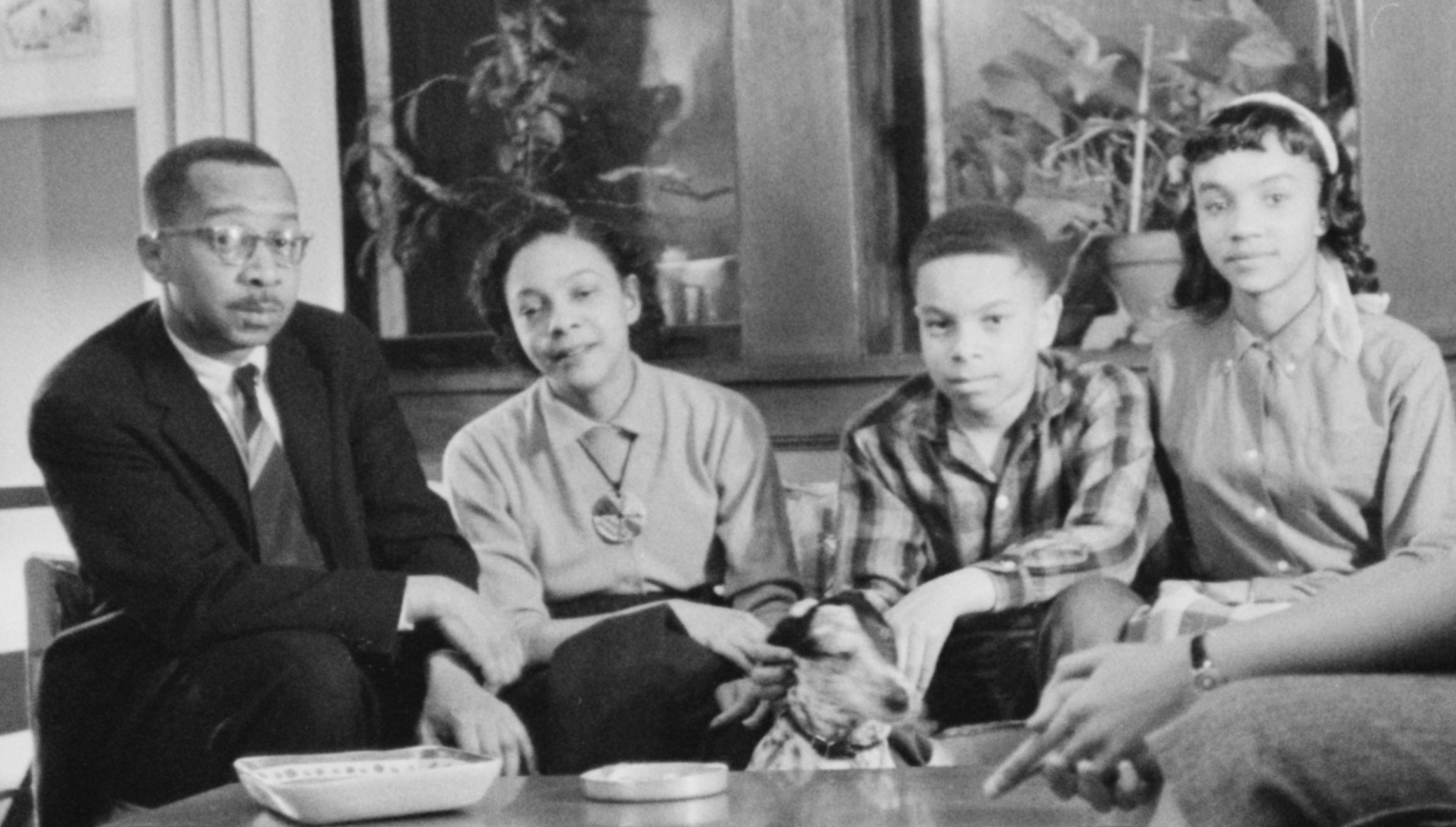
Mamie Phipps Clark and her husband, Kenneth Clark, two renowned African American researchers and psychologists, have made a profound impact in the field of psychology and beyond. They are best known for their groundbreaking studies on African American children and doll preference, which played a pivotal role in the historic Brown v. Board of Education Supreme Court case on desegregation (American Psychological Association, 2019).
The Clarks’ research was revolutionary in demonstrating the psychological effects of segregation on African American children. Their studies involved presenting children with dolls of different races and observing their preferences and attributions. The findings revealed a preference for White dolls, highlighting the internalised effects of racism and segregation on young African American children’s self-perception and identity.
Beyond their research, the Clarks were also deeply committed to applying their findings to improve social conditions. They opened the first child guidance centre in Harlem, aiming to provide psychological and social services to children and families in the community. This centre was not just a place for therapy and counselling, but also a hub for social change and advocacy.
Their work extended beyond the laboratory and the therapy room, influencing policies and contributing to the Civil Rights Movement. The Clarks’ dedication to using psychological research for social betterment has made them iconic figures in the fields of both psychology and social justice.
Multicultural and Cross-Cultural Psychology
- Inez Beverly Prosser (1895–1934): As the first African-American woman to earn a PhD in psychology, Prosser’s research on the impacts of educational environments on African American students’ psychological development was groundbreaking.
- Francis Cecil Sumner (1895–1954): Sumner, the first African American to receive a PhD in psychology, played a crucial role in challenging racial biases in intelligence testing and education.
- Martha Bernal (1931–2001): As the first Latina to earn a PhD in psychology in the US, Bernal advocated for cultural sensitivity in psychological research and practice, emphasising the importance of cultural context in child development.
Neuroscience and Neuropsychology
- Brenda Milner (1918–present): As a pioneering neuropsychologist, Milner’s seminal work on memory systems and the role of the hippocampus has profoundly influenced the fields of neuroscience and psychology, enhancing our comprehension of human brain function.
- Ursula Bellugi (1931–2022): Bellugi’s groundbreaking research on American Sign Language and Williams syndrome offered pivotal insights into the neural underpinnings of language and cognition, establishing sign languages
8. Donald Hebb
Donald Hebb’s contributions to psychology, particularly in the realms of synaptic plasticity and neural networks, have been profoundly influential. His work, especially the concept of the Hebbian synapse, is a cornerstone of our understanding of the ways in which neural connections strengthen through repeated activation, a process fundamental to learning and memory (Langille & Brown, 2018).
Hebb’s theory, often described with the phrase “cells that fire together, wire together”, has been pivotal in the development of theories related to neural network functioning and synaptic plasticity. This concept has significantly influenced both neuroscience and psychology, offering a foundational understanding of how experiences can shape and rewire the brain’s neural pathways (Alghafri, 2021).
His theories have continued to be relevant and form a basis for ongoing research in cognitive neuroscience. Hebb’s insights into how learning and memory are encoded in neural networks have been crucial in advancing our understanding of cognitive processes. This has implications not only for theoretical psychology but also for practical applications in areas such as education, rehabilitation, and even artificial intelligence.
Moreover, Hebb’s work has bridged the gap between psychological phenomena and biological mechanisms. By proposing mechanisms through which neural activity leads to strengthened connections and learning, he provided a biological basis for complex psychological processes.
Hebbian Synapse
Imagine your brain as a network of roads. Each time you think, feel, or do something, it’s like sending a car down a specific road. If two roads are often used at the same time, they start to connect and build a stronger, more direct path between them. This means the next time you start to think or do one of those things, it’s easier and quicker for your brain to follow this path and do both together.
Summary: Highlighting Eight Influential Psychology Pioneers
In reviewing the contributions of the eight psychology pioneers discussed, we’ve touched on a fraction of the number of individuals whose work has profoundly shaped our understanding of psychology. Each was chosen for their unique contributions to distinct areas of psychology, offering deep insights into human thought, emotion, and behaviour. Yet, it’s essential to recognize that the field extends far beyond these figures and their innovations. Psychology’s richness comes from diverse voices, many of which have historically been marginalised or overlooked.
The classic psychology textbook’s emphasis on a select few — often white male — psychologists as the foundational figures of psychology overlooks the contributions of pioneers from varied backgrounds, races, genders, and cultures. This narrow focus not only skews our understanding of psychological principles but also diminishes the field’s relevance to a broader spectrum of human experience.
Acknowledging the wide array of contributors to psychology is not just about giving credit where it’s due. It’s about enriching our understanding of human nature by incorporating many perspectives and experiences. This broader view challenges us to think outside traditional frameworks and to consider the full complexity of human behaviour and mental processes.
As we continue to explore psychology, let’s keep asking ourselves, “What perspectives are missing?” and “Whose voices are we not hearing?”. These questions remind us of the importance of inclusivity in psychological research and practice. They encourage us to seek out and value the contributions of all psychologists, recognizing that the field is most vibrant and most insightful when it reflects the diversity of human experience.
Image Attributions
Figure SUP HP.1. Image source Wilhelm Wundt By anonymous/unknown – reprinted in Koenig E: W. Wundt, seine Philosophie und Psychologie (1901), Public Domain.
Figure SUP HP.2. Figure 1.4 as found in Psychology 2e by OpenStax is licensed under a CC BY 4.0 License.
Figure SUP HP.3. Noam Chomsky speaks about humanity’s prospects for survival in Amherst, Massachusetts, United States on 13 April 2017 by By Σ, retouched by Wugapodes is licensed under a CC BY 4.0 License.
Figure SUP HP.4. Sketch of Carl Ransom Rogers Carl Rogers defined the concept of self-image (or self-concept) as the set of all the thoughts, ideas and judgments you have about yourself by Didius at Dutch Wikipedia and transferred from nl.wikipedia to Commons is licensed under a CC BY 2.5 license.
Figure SUP HP.5. Kenneth and Mamie Clark with their children, 1958 by Charlotte Brooks is in the public domain.
To calculate this time, we used a reading speed of 150 words per minute and then added extra time to account for images and videos. This is just to give you a rough idea of the length of the chapter section. How long it will take you to engage with this chapter will vary greatly depending on all sorts of things (the complexity of the content, your ability to focus, etc).

